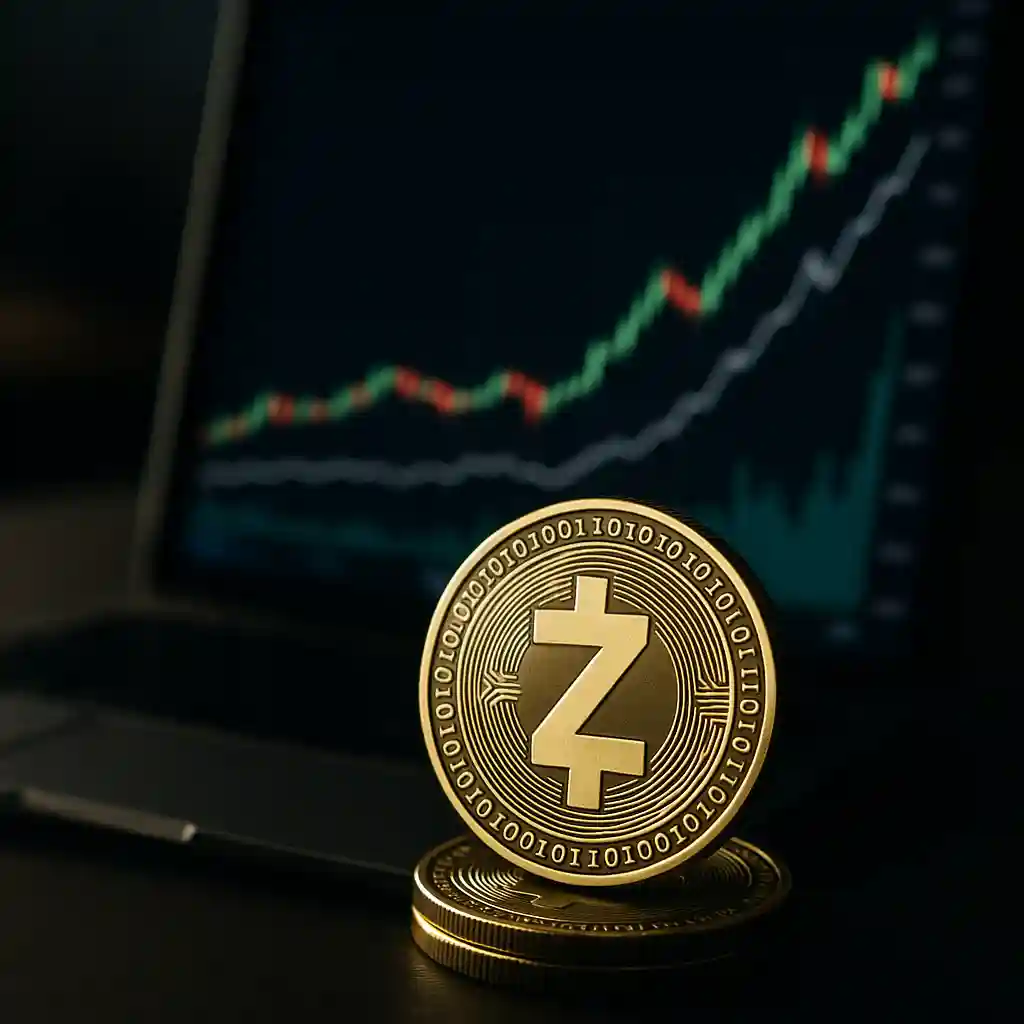Zcash's Intraday Surge Sparks Renewed Interest in Privacy Coins
 16 Nov 25
16 Nov 25
Privacy Coins Take Center Stage With Zcash’s Spectacular Intraday Rally
Zcash, a leading privacy-focused cryptocurrency, grabbed headlines after an extraordinary surge saw its price rocket by an astounding 741% in a single day. This unexpected rally has intensified debate within the digital asset space about the future of privacy coins, catalyzing renewed interest among both investors and advocates for transactional anonymity.
Zcash’s Price Explosion: A Closer Look
On the day in question, Zcash (ZEC) witnessed a meteoric rise in its valuation, drawing widespread attention across trading forums and financial media. The coin’s rapid upward movement was not just a testament to volatile market trends but also a reflection of growing demand for private, untraceable transactions. Intraday, ZEC’s price leapt from a relatively stable level to a peak, representing a record increase of 741% before stabilizing as profit-taking set in. The magnitude and speed of this surge raised questions among market observers about the factors fueling such intense interest.
Driving Forces Behind Zcash’s Volatility
Several elements contributed to Zcash’s remarkable spike. Firstly, the broader market backdrop included a surge in interest for privacy coins, partially linked to concerns about surveillance, data privacy, and potential regulation of mainstream cryptocurrencies. Zcash’s protocol stands out by offering users the option of shielded transactions—cryptographically protected payments that obfuscate sender, receiver, and transaction amount from public scrutiny. This unique capability positioned ZEC as a focal point amid renewed discussions on transaction privacy.
The Growing Popularity of Privacy-Enabling Cryptocurrencies
The Zcash rally was not isolated. Other privacy coins—digital assets designed to mask the details of transactions—also experienced significant volatility during the same period. Many industry analysts interpret this as a signal of the increasing relevance of privacy in the crypto landscape. As privacy concerns mount among both individual users and institutional actors, privacy coins like Zcash and its competitors are being reevaluated for their technological promise and potential risks.
Zcash’s Unique Technology
Notably, Zcash’s underpinning technology, zk-SNARKs, enables robust privacy by allowing transactions to be validated without revealing sensitive details. This stands in contrast to Bitcoin and many other digital currencies, which broadcast transaction data openly on their respective blockchains. Zcash is designed to provide financial transparency where needed, while still ensuring individual transactions remain shielded if users so choose.
Market Reaction and Community Response
The explosive price action fueled spirited discussion across cryptocurrency forums and trading platforms. Enthusiasts celebrated the sudden gains, with many pointing to the surge as validation of longstanding arguments in favor of privacy-preserving coins. Some market participants speculated that potential regulatory moves targeting publicly traceable cryptocurrencies may have enhanced Zcash’s appeal, making privacy-centric alternatives more attractive.
Meanwhile, skeptics cautioned about the possibility of a speculative bubble and warned that the volatility could result in sharp corrections, especially for new entrants drawn in by the headlines.
Regulatory Attention Intensifies
The spotlight on privacy coins has not escaped regulatory bodies' attention. Global discussions about anti-money laundering (AML) and know-your-customer (KYC) rules have become more pointed with the rise of privacy technologies in cryptocurrencies. Regulators argue that privacy features complicate law enforcement’s ability to monitor illicit activity. Some exchanges have responded by delisting privacy coins to avoid compliance hurdles.
Nevertheless, Zcash’s developers emphasize that the project’s features serve legitimate concerns about user privacy and financial autonomy, underscoring that cryptographic privacy and regulatory compliance can, in principle, coexist.
Broader Implications for Cryptocurrency Markets
The Zcash episode illuminated the evolving divide within the cryptocurrency ecosystem between openness and privacy. While Bitcoin is often lauded for its pioneering transparency, privacy coins like Zcash assert a different vision—one where individuals can control the confidentiality of their financial lives. The sharp market movement reflected both pent-up demand and ongoing debates about the balance between compliance, security, and autonomy in digital economies.
Market participants are closely watching how both technological developments and regulatory stances shape the future trajectory of privacy coins. The ZEC rally demonstrates how quickly sentiment—and valuations—can shift in response to new or renewed interest in privacy-preserving features.
Looking Ahead: The Future of Privacy Coins
Following the extraordinary Zcash price rally, market observers are divided over whether the surge marks the beginning of a sustained trend or merely a transient market anomaly. What is clear, however, is that privacy remains a hot-button issue in the crypto space. As regulatory frameworks evolve and technologies mature, privacy coins are likely to play a pivotal role in ongoing debates about digital finance’s direction.
For now, interest in Zcash and its peers shows little sign of subsiding. The events underline both the enduring appeal of privacy and the volatility inherent to frontier technologies.



















